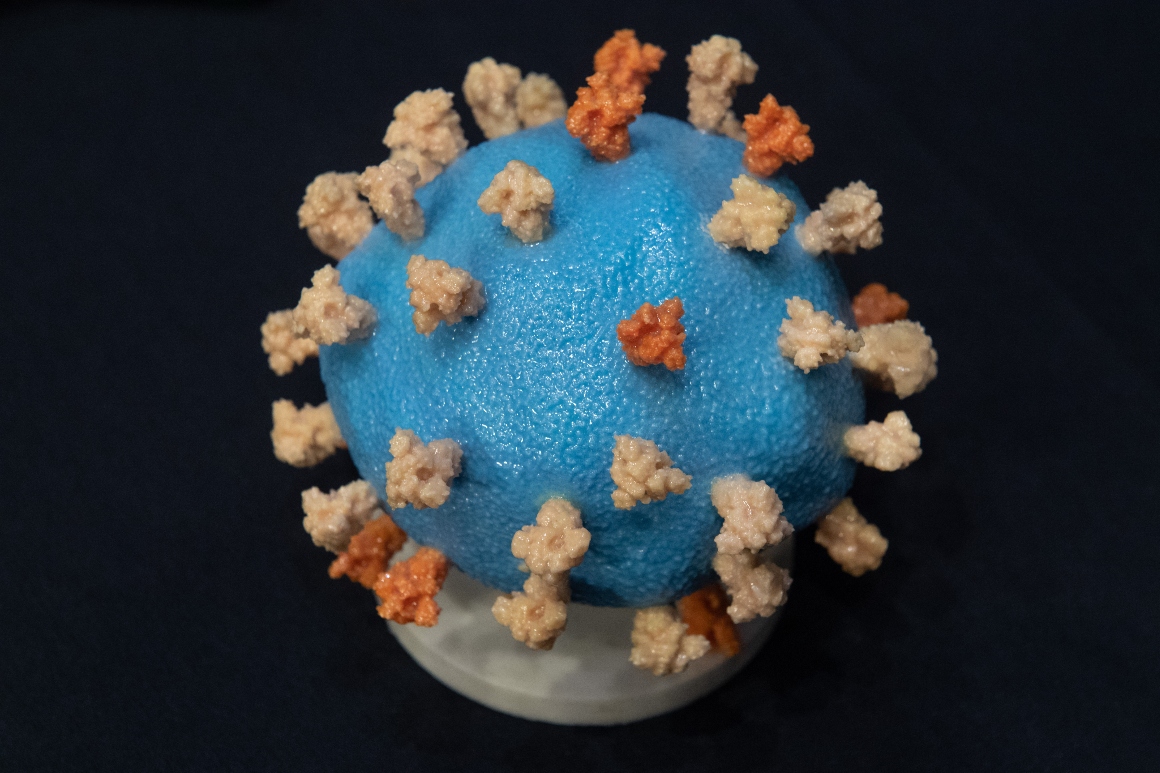
Representatives of five companies developing coronavirus vaccines testified before a House panel Tuesday about their quest to produce shots in record time — and distribute them worldwide.
Pharmaceutical executives’ appearances on the Hill in recent years have almost entirely been tied to the heated debate over high drug costs, from soaring insulin prices to patent games that limit generic competition.
But the hearing before the Energy and Commerce Oversight Subcommittee was an opportunity for officials from AstraZeneca, Johnson & Johnson’s Janssen, Merck, Moderna and Pfizer to polish their image as altruistic innovators amid a global pandemic.
Here are five key messages from the hearing.
Vaccine makers want the government to decide who gets first dibs.
All of the executives said the U.S. government should be in charge of allocating and distributing any vaccines. That’s likely to be a complicated task, because demand will far outstrip initial supplies.
Democrats were not impressed.
“Clearly the federal government has failed on here multiple times over,” said Massachusetts Democrat Joe Kennedy, pointing to the Trump administration’s early stumbles on distributing personal protective equipment and concerns that the government would not prioritize underserved populations at high risk for the virus.
But there is precedent for federal control. The Centers for Disease Control and Prevention typically lays out a framework for who is top priority to receive a vaccine and — in other outbreaks like the 2009 swine flu — how shots should be allotted to states.
The independent, nonpartisan National Academies of Sciences, Engineering, and Medicine announced shortly after the hearing that the Trump administration has asked them to develop guidance on how to distribute eventual coronavirus vaccines.
Merck’s chief patient officer Julie Gerberding, a former CDC director, endorsed the idea during the hearing.
Democrats are worried about price.
Multiple Democrats asked for assurances that the eventual shots would be affordable, pointing to the hundreds of millions of dollars — if not billions — that all the manufacturers who testified, save Pfizer, have received from the federal government.
AstraZeneca’s $1.2 billion deal to give the U.S. 300 million doses this fall means that they are selling their shots at no profit, said Mene Pangalos, executive vice president. Gerberding and Moderna President Stephen Hoge said they would not sell their products at cost; J&J and Pfizer representatives said they would be not-for-profit and otherwise priced responsibly during the pandemic.
It is unclear where the no-profit promises run out, particularly with the caveat that those prices are tied to the pandemic. The vague language has fed skepticism among lawmakers and pricing advocates.
… and Republicans are worried about ties to China.
Several Republicans including Reps. Buddy Carter and Markwayne Mullin grilled the executives about their domestic production capabilities and whether any of their materials came from China. While all five promised that U.S. doses will be made onshore, they were fuzzier about where raw materials would come from.
Moderna’s supply chain includes a number of imported raw ingredients, Hoge said. China may be included “but I don’t believe it’s a major component,” he added.
Other executives said they needed to check on the details of their supply chains, which include everything from basic ingredients to glass vials and stoppers.
Chinese facilities account for 13 percent of raw material suppliers for U.S. drugs, according to a government watchdog report last year.
The manufacturers are not concerned about Trump pressure.
Vaccine makers say President Donald Trump’s repeated promises of a vaccine by the end of the year are not swaying them to make hasty decisions or lower their standards.
“This is going to be a vaccine that is going to be used globally, so every regulatory authority is going to have a view on the safety and efficacy of our vaccine,” Pangalos said.
Gerberding said she was “relieved” to see guidance from the Food and Drug Administration that included specific expectations for vaccine approval — including an expectation that they be effective in at least 50 percent of patients.
None of the executives would commit to having an approved vaccine readily available to all Americans this year.
We need to get started on outreach to skeptical people now.
The number of Americans who are hesitant about vaccines is at an all-time high — and the speed of coronavirus vaccine development is not quelling those fears, lawmakers and pharmaceutical executives said.
“We recognize the public distrust, and the speed may be perceived as a problem,” said AstraZeneca’s Pangalos.
That could make it harder to vaccinate enough of the population to achieve herd immunity to the coronavirus when a shot is available.
Janssen’s Macaya Douoguih called for education initiatives to begin immediately to boost both trust and access. Each executive discussed the need for local and community outreach, particularly in minority and underserved populations that historically mistrust government medical efforts.
“There is a trust deficit, and we have to rely on people who have that trust,” said Hoge.
Susannah Luthi contributed to this report.
Source: politico.com
See more here: news365.stream






